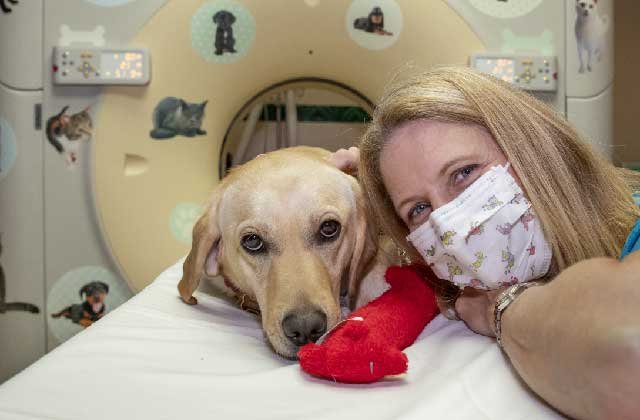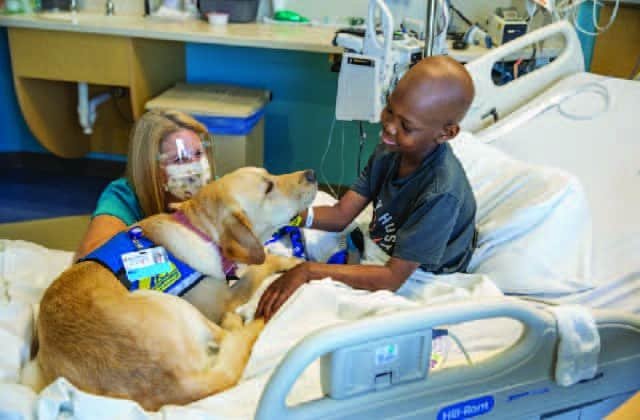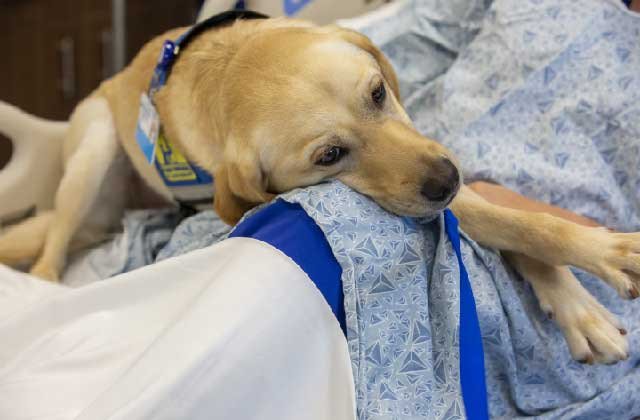We’ve always heard that there’s no better way to deal with illness than with a cuddly dog that recognizes when you’re down. We’re hopeful that dogs like Brea, a 2-year-old Yellow Labrador who is bouncing along the corridors of Johns Hopkins All Children’s Medical Center in St. Petersburg, Fla., will become more common at other hospitals.

Brea is the hospital’s first service dog, and she is handled by Leah Frohnerath, a child development nurse. Brea was trained by Canine Companions for Independence, a non-profit organization that provides free service dogs to persons in need.
According to Frohnerath, Brea has 40 distinct orders that they use together, according to WFTS-TV in St. Petersburg. They may link them and force her to participate in various rehabilitation tasks, such as speech therapy or assisting children with ambulation throughout the facility.

Brea, according to Frohnerath, sits next to the children and assists them in getting their pokes. On a random day, he lay with a young man while sedated with an anesthesia mask.
Facility dogs, such as Brea, are categorized separately from other assistance animals under federal laws. Facility canines and their handlers have received more training and credentials, working more closely with hospital staff. According to Frohnerath in a hospital press release, she is overjoyed for Brea to be a part of their team.

Frohnerath had a disability as a child and discovered the therapeutic attraction of dogs at a young age. She states that she has surely made every effort in her life and profession to nurture these beautiful experiences and hidden clinical interventions between person and animal.
Brea is just one of several canines that are making an impact in the medical community. Boncuckn, who waited outside the hospital while his owner was being treated for almost a week were also on the list.
All photos courtesy of Johns Hopkins All Children’s Hospital


